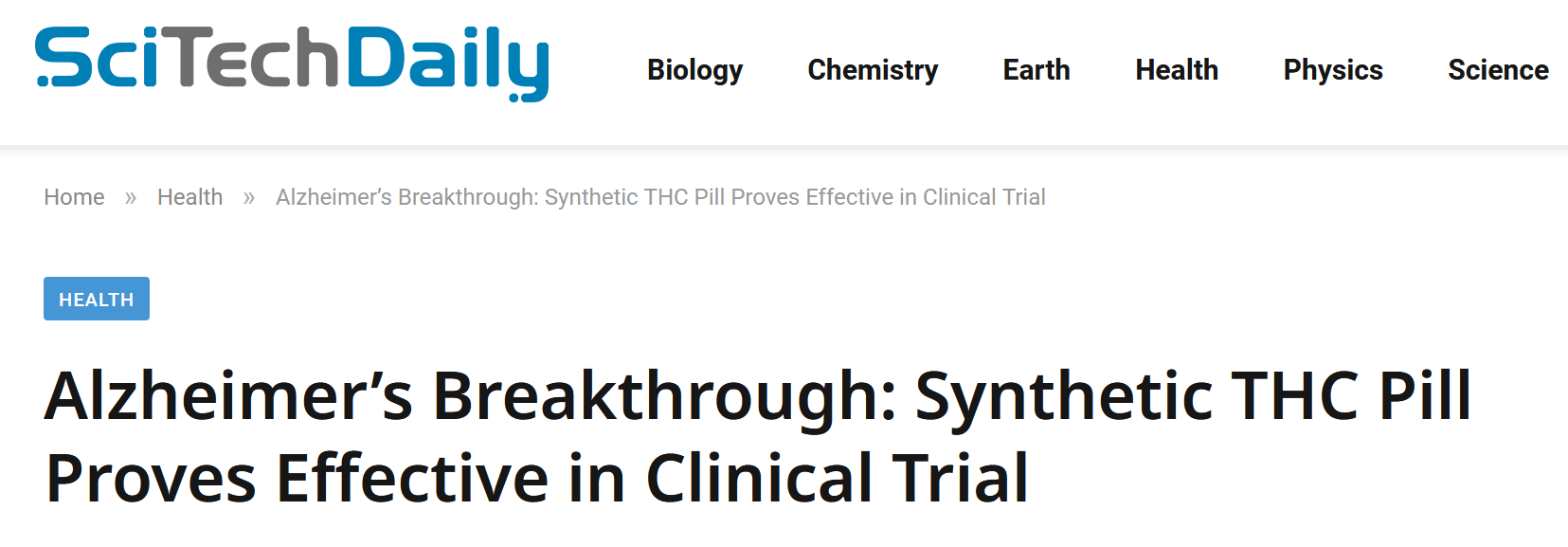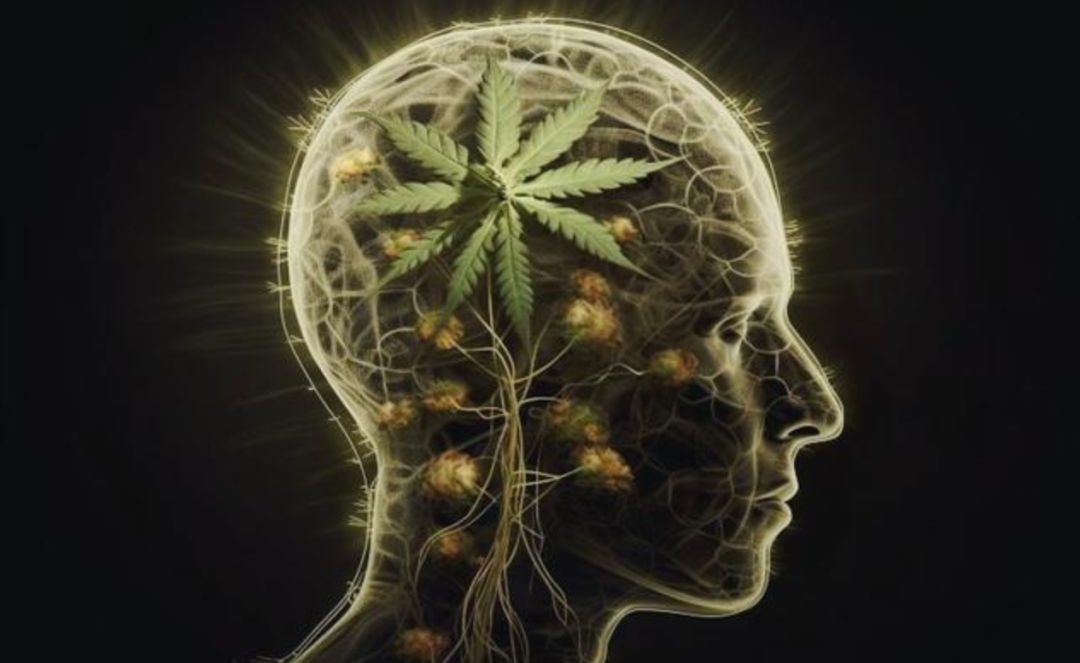Important breakthrough in Alzheimer's treatment: synthetic THC (dronabinol) pill proves effective in clinical trials
New research confirms that synthetic THC (dronabinol) is well tolerated by patients without the common side effects of existing Alzheimer's agonist drugs.

A study conducted by researchers at Johns Hopkins University School of Medicine and Tufts University School of Medicine found that dronabinol in pill form, a synthetic version of FDA-approved THC (the main ingredient in marijuana), reduces agitation by an average of 30 percent in patients with Alzheimer's disease.
Compared to current medications for mania, such as antipsychotics, dronabinol produced similar sedative effects without causing adverse effects such as delirium or seizures, the researchers said.

Results of the eight-year clinical trial were presented Sept. 26 at the International Association of Geriatric Psychiatry meeting in Buenos Aires, Argentina. Paul Rosenberg, M.D., professor of psychiatry and behavioral sciences at the Johns Hopkins University School of Medicine and co-principal investigator of the study, said, “These new findings represent our eight-year commitment to treating people with Alzheimer's disease and their caregivers. Agitation is one of the most distressing symptoms of Alzheimer's disease dementia, and we are pleased to have made positive progress in treating these patients.”
Alzheimer's mania and the need for new treatments
Alzheimer's disease is the most common neurodegenerative disease in the U.S. The National Institutes of Health estimates that about 6.7 million Americans age 65 and older have the disease. That number is expected to grow to 13.8 million by 2060. Bipolar disorder is difficult to manage. It is defined as excessive movement (pacing or repetitive motions), verbal aggression, and/or physical aggression. An estimated 40% of people with Alzheimer's disease develop agitation.
While mild agitation can sometimes be relieved with behavioral interventions, in moderate to severe cases, some form of medication is usually needed to control symptoms and provide relief for caregivers. “It is the agitation, not the memory loss, that causes people with dementia to frequent emergency rooms and long-term care facilities,” said Brent Forrest, M.D., chair and chief psychiatrist of the Department of Psychiatry at Tufts Medical Center and co-principal investigator of the study, ”Dronabinol can both reduce healthcare costs and can have an important positive impact on the physical and mental health of caregivers.”
In this new study, researchers enrolled 75 patients with severe Alzheimer's disease bipolar disorder at five clinical centers, including 35 patients admitted to Johns Hopkins Hospital between March 2017 and May 2024. To be eligible, patients had to have a formal clinical diagnosis of Alzheimer's disease and present with at least one major symptom of bipolar disorder that lasted at least two weeks. Prior to treatment, patients were tested for agitation using the Pittsburgh Agitation Scale (PAS) and the Neuropsychiatric Inventory Agitation/Aggression subscale (NPI-C).
The PAS categorizes agitation on a scale of 0 to 4, with 4 being the most agitated.The NPI-C briefly assesses neuropsychiatric symptoms, including delusions, hallucinations, anxiety/depression, and other factors. Baseline scores were obtained from caregivers at the start of the trial.
Participants were then randomly selected to take either dronabinol in the form of a 5 mg pill or placebo in the form of a pill twice a day for three weeks, and then retested using the PAS and NPI-C.
Future Research and Considerations
Results in the dronabinol group showed a mean starting PAS value of 9.68 and a final value of 7.26 after three weeks, a 30% decrease in scores compared to the placebo group, which showed no change in scores. In addition, the patients tolerated dronabinol well compared to their current agitation treatment. “Results like these are encouraging. We are pleased that FDA-approved dronabinol has a potent effect on agitation treatment and appears to be safe,” said Rosenberg, ”This provides us with another tool to improve care for our loved ones with Alzheimer's disease.”
The researchers said they plan to conduct a long-term study of dronabinol for Alzheimer's disease with an expanded sample size. They also hope to continue exploring other ways medical marijuana can benefit patients and caregivers.
Dronabinol is a synthetic form of tetrahydrocannabinol, the main psychoactive ingredient in marijuana. It was approved by the U.S. Food and Drug Administration in 1985 to treat loss of appetite in HIV/AIDS patients and is currently used to treat nausea and vomiting in patients undergoing cancer chemotherapy.
The researchers warn that their current findings are not intended to encourage or inform people to use other forms of medical marijuana available in 38 states and the District of Columbia.
The study was funded by the National Institute on Aging of the National Institutes of Health. Co-investigators included Halima Amjad, Haroon Burhanullah and Milap Nowrangi of Johns Hopkins University School of Medicine, Marc Agronin of Miami Jewish Health, and James Wilkins and David Harper of McLean Hospital.(Source: Johns Hopkins School of Medicine)












